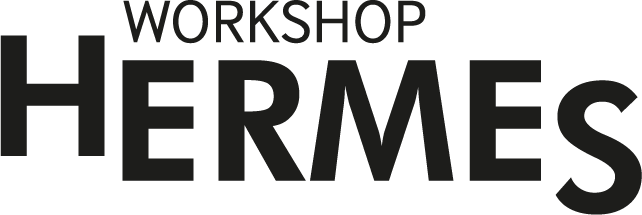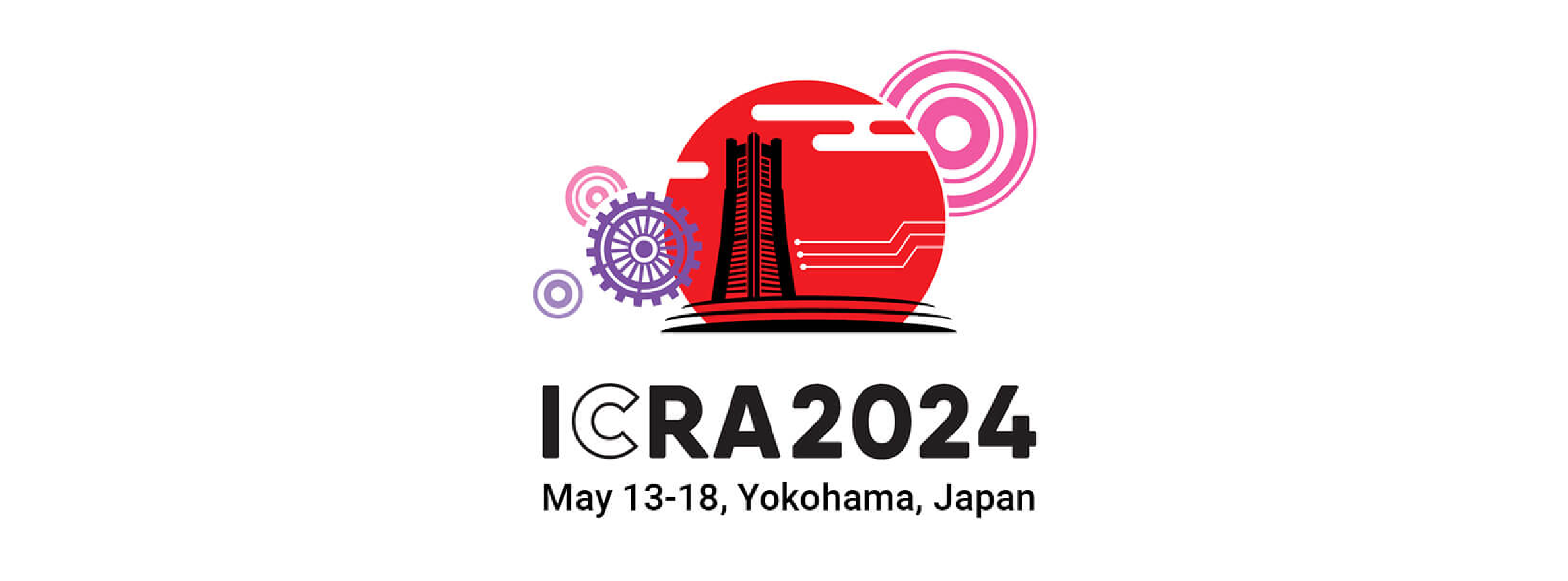2nd International HERMES Workshop
IEEE International Conference on Robotics and Automation
2024 May 13, Monday
Many thanks to all the invited speakers, paper presenters, members of the scientific committee, and attendees of our 2nd workshop!
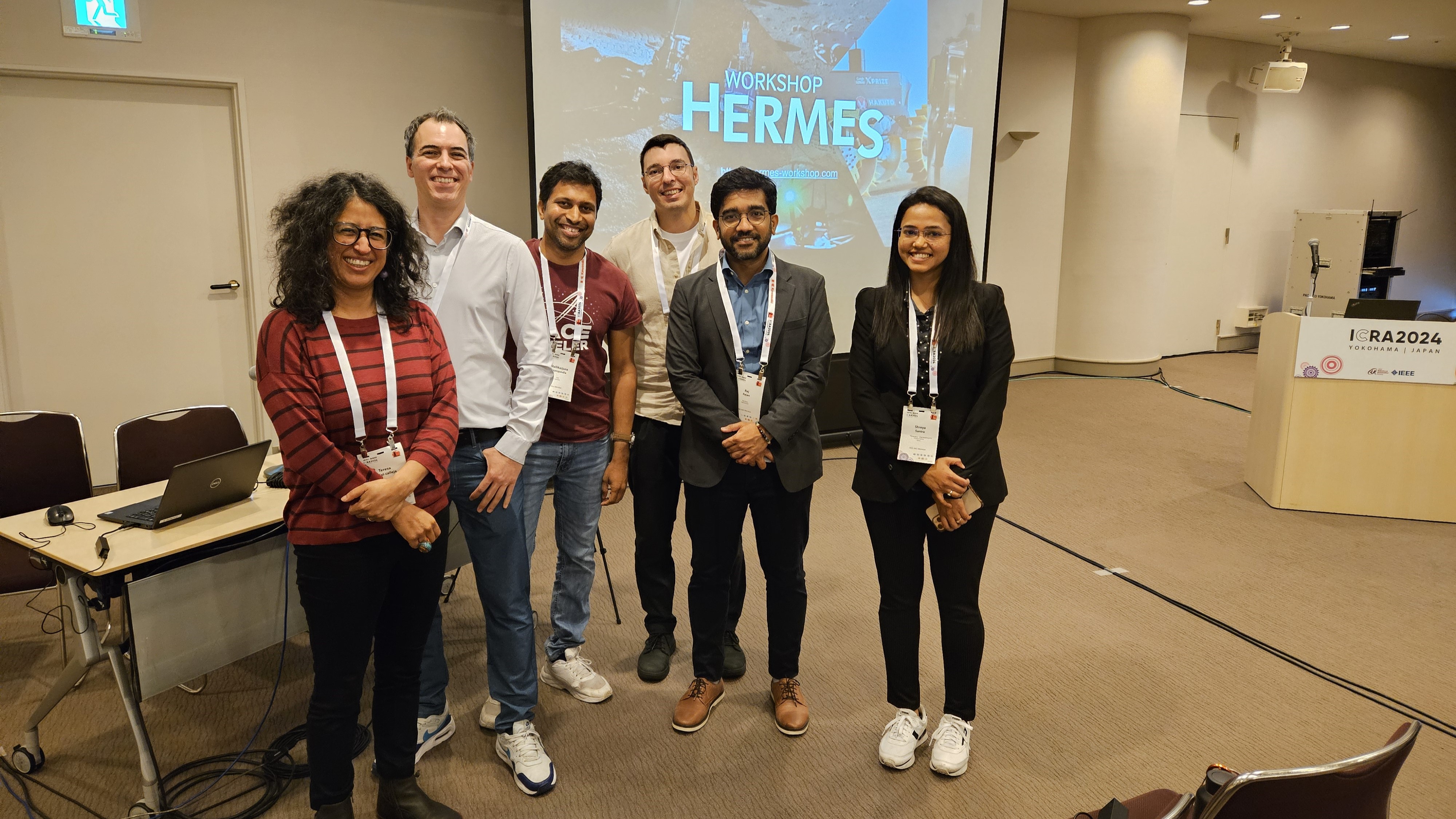
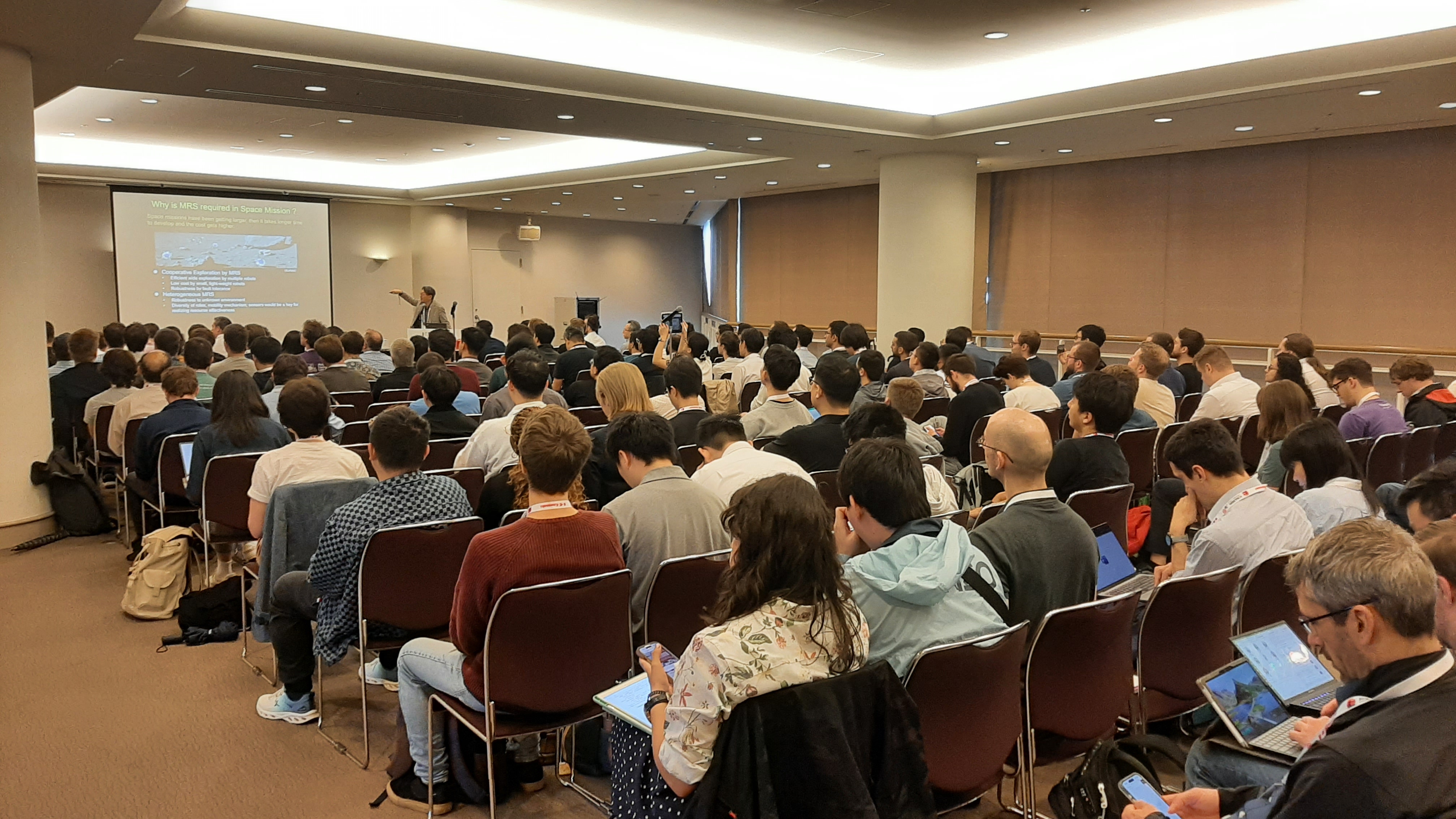
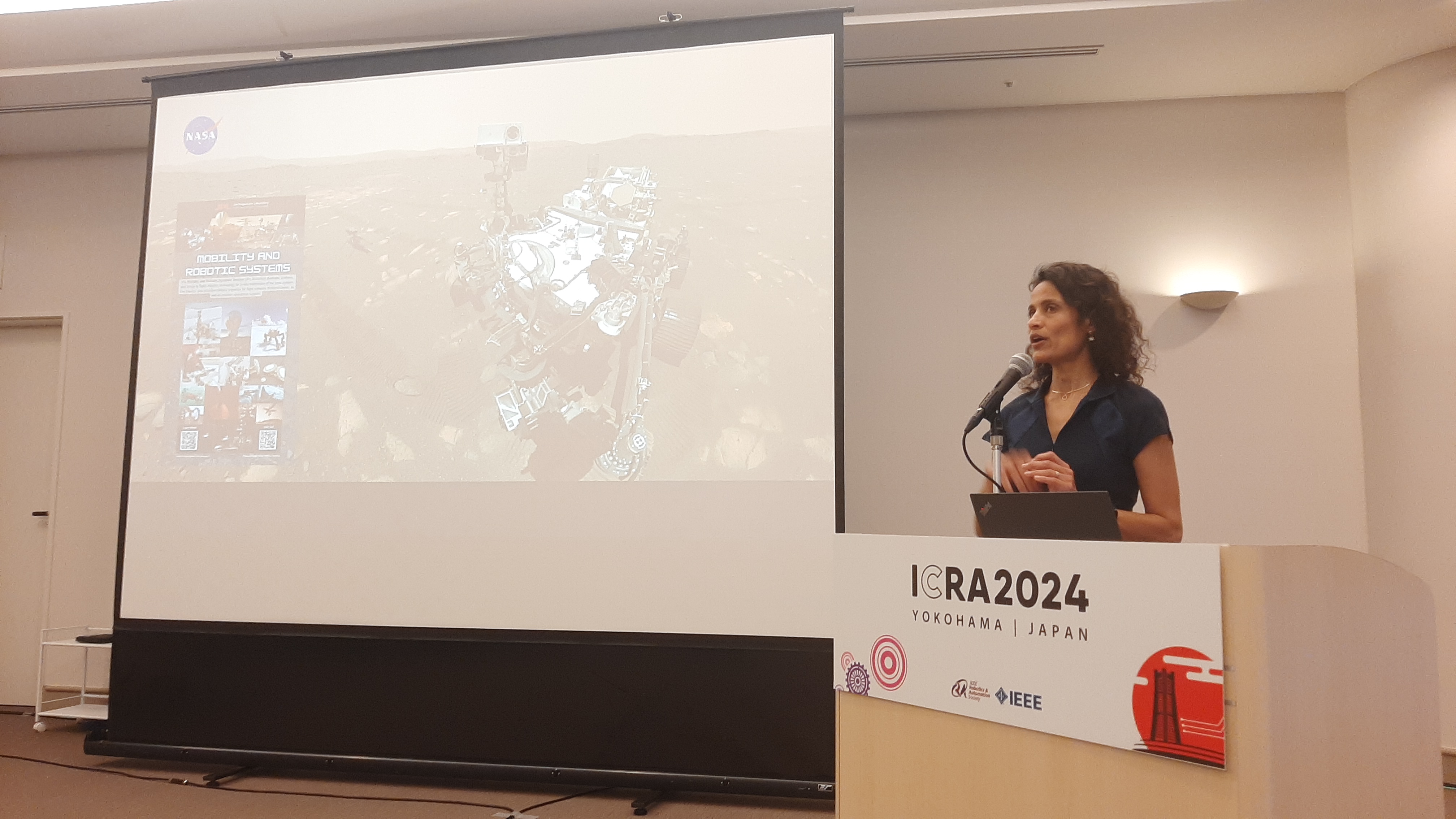
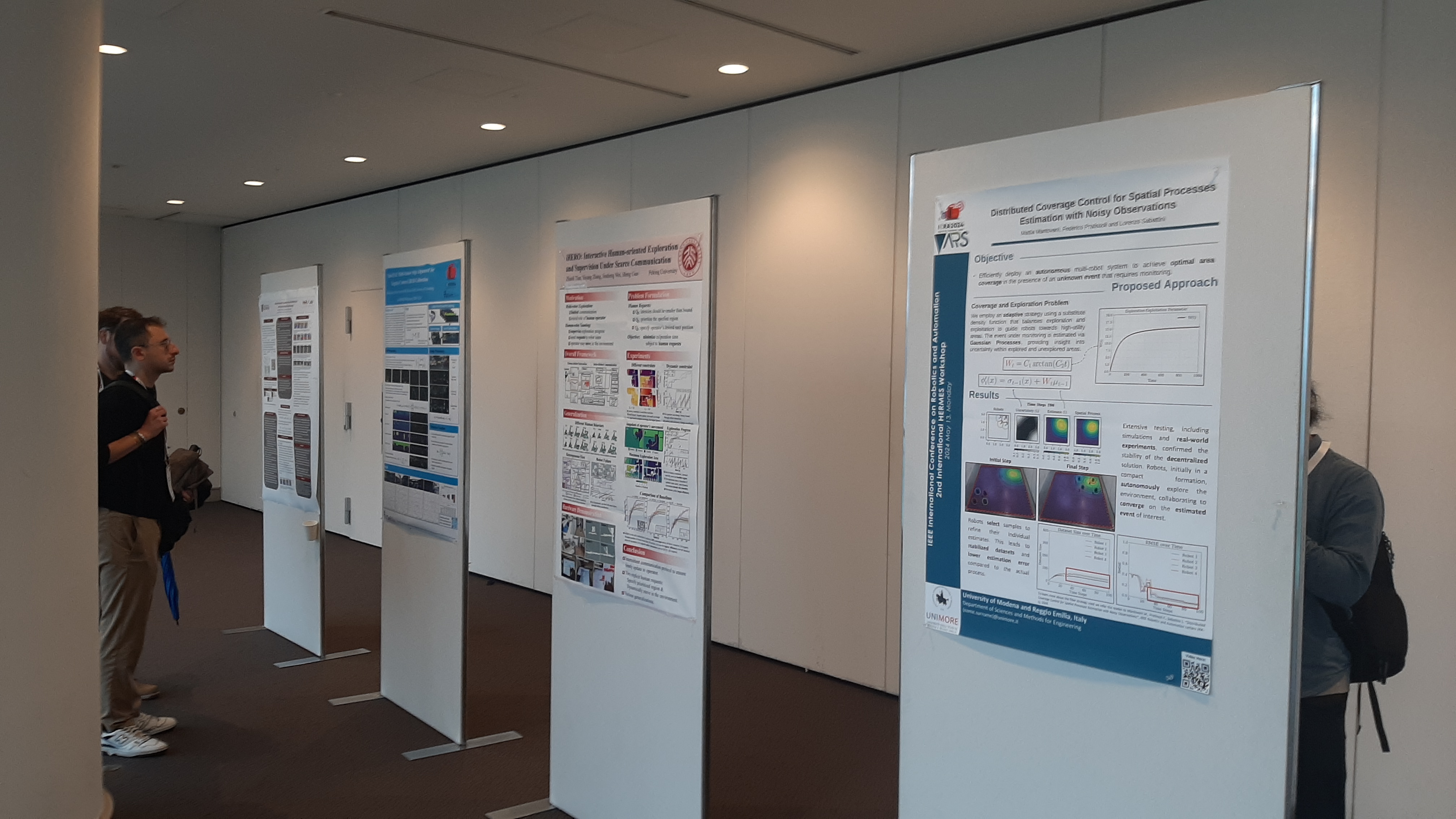
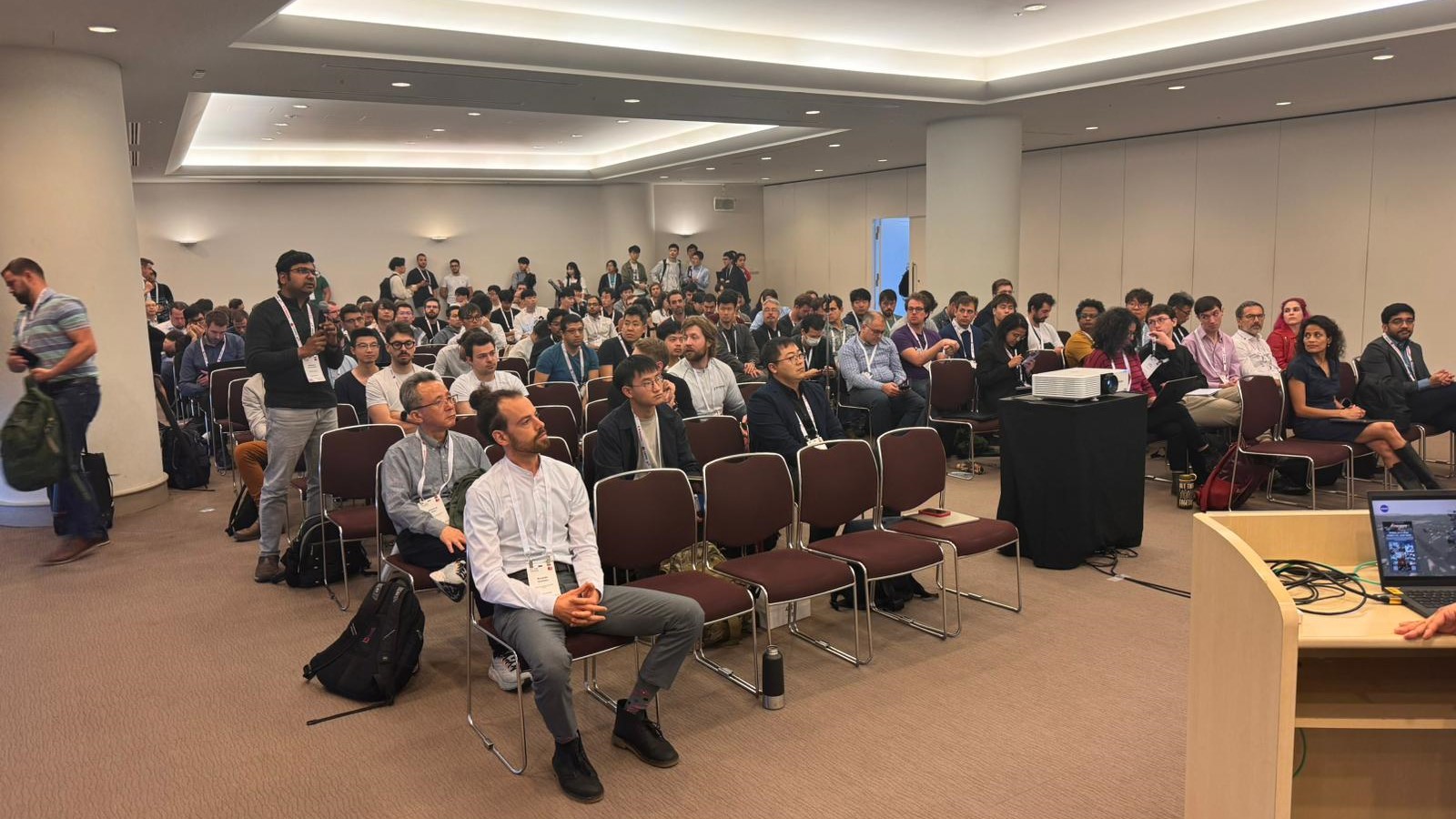
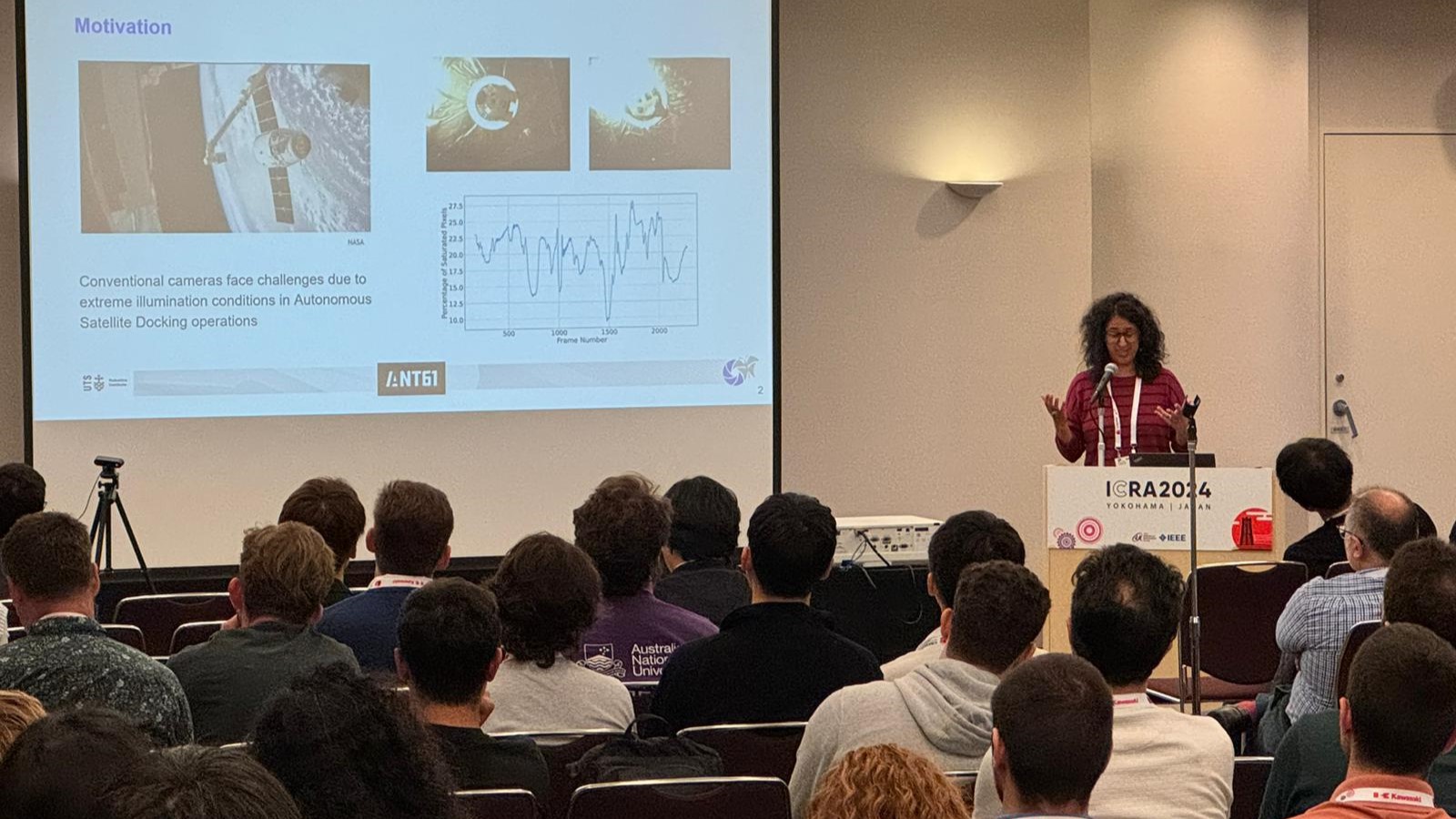
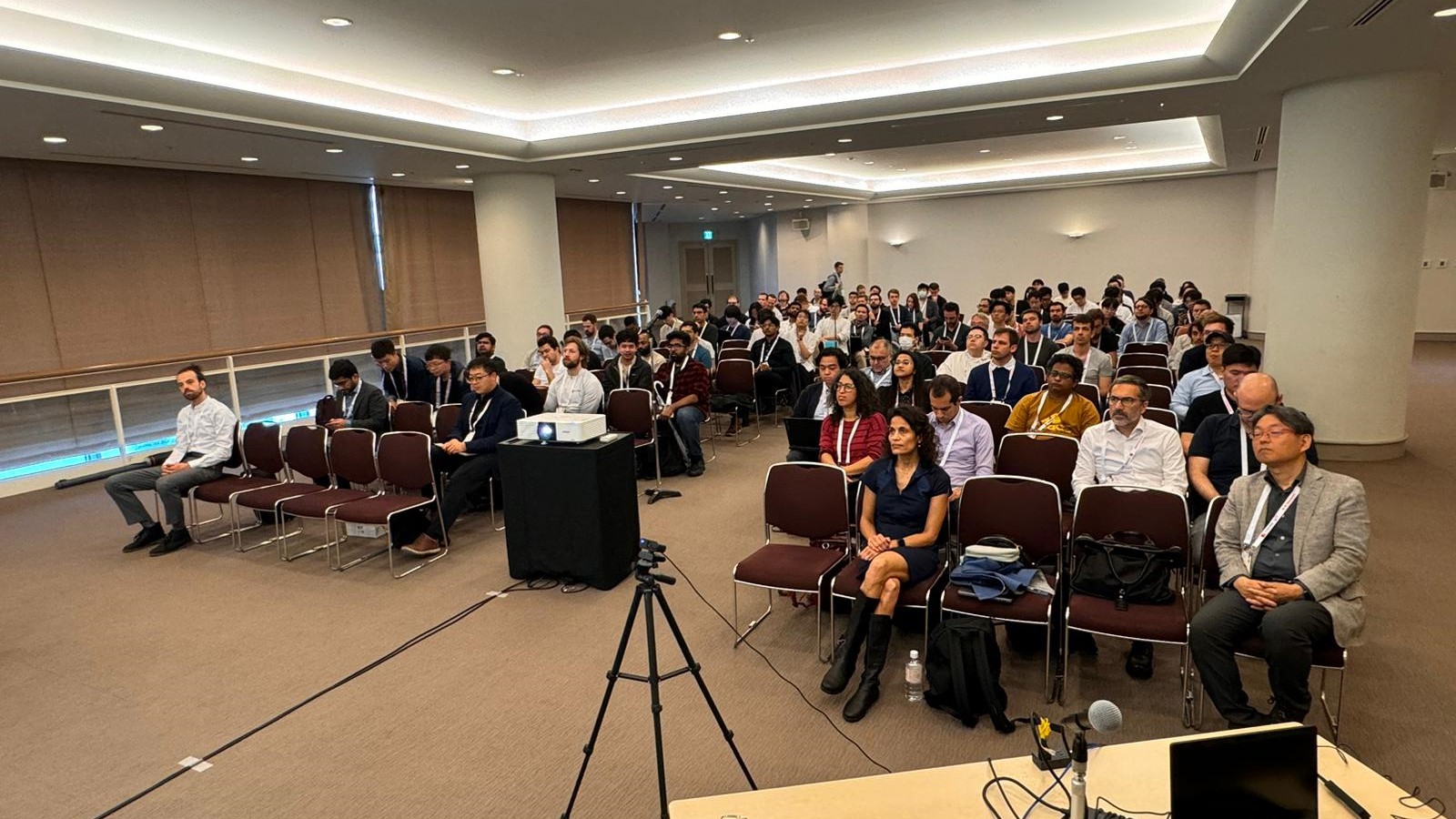
Multi-Robot Sensing & Perception in Extreme Environments
Over the past decades, deploying robots in extreme environments has become imperative, due to the inherent risks and insurmountable challenges that such environments pose to human safety. From monitoring the terrestrial cryospheric processes to sampling south polar lunar regolith, robots have the capacity to operate in and adapt to these otherwise hardly accessible environments, executing complex tasks without the need for human presence.
Leveraging heterogeneity (either behavioral, physical, or both) within teams of robots can enable efficient data collection, enrich measurements precision, and enhance mission resilience. However, navigating and negotiating the numerous hurdles imposed by these environments—including complexly illuminated landscapes, featureless and unstructured visual fields, uneven topographies, and GPS-denied conditions, among others is no straightforward endeavor. In this 2nd edition of the HERMES (Heterogeneous multi-robot cooperation for exploration & science in extreme environments) workshop we will bring together seasoned scientists and young researchers working toward improving data acquisition, perception & sensing, and spatial & situational awareness in extreme environments through heterogeneous multi-robot cooperation.
Invited Speakers





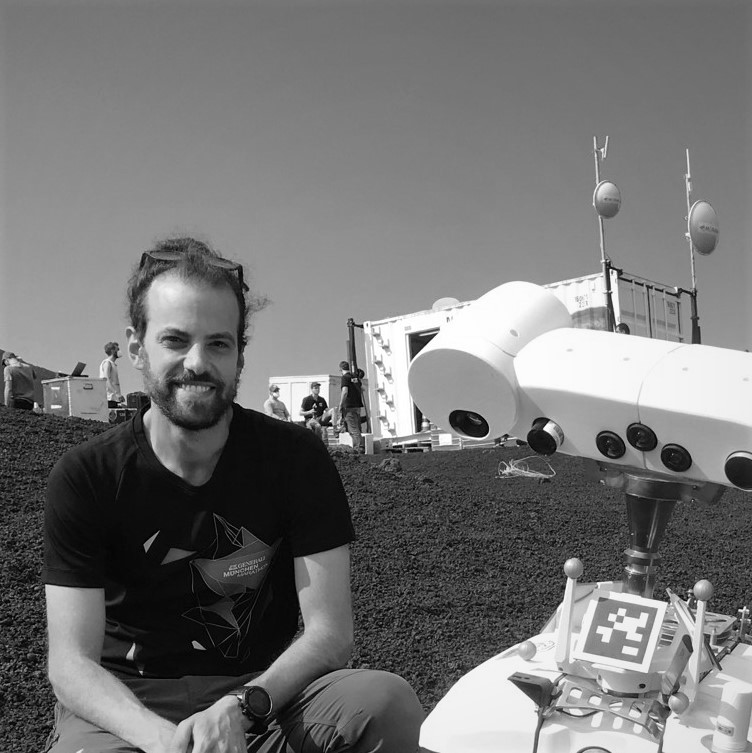


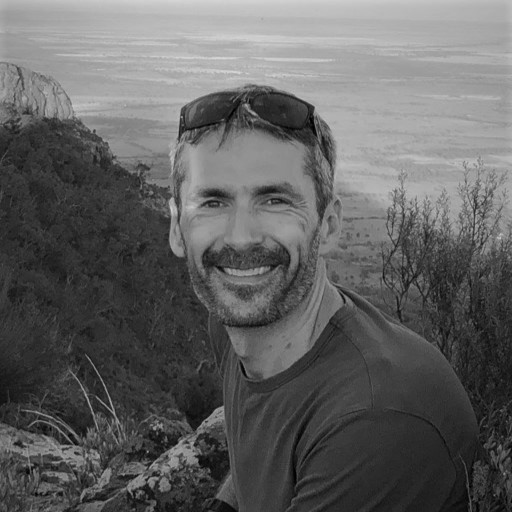
Program
*All times are in JST (Japan Standard Time, UTC+9)
Selected poster presentations
- Aiman Munir, Ehsan Latif, and Ramviyas Parasuraman, Anchor-oriented Multi-Robot Coverage without Global Localization, University of Georgia
- Zhuoli Tian, Yuyang Zhang, Jinsheng Wei, and Meng Guo, Human-oriented Interactive Exploration and Supervision with Limited Communication, Peking University
- José Pedro, Roberto C. Sundin, David Umsonst, and Patric Jensfelt, COPE: Robustifying Collaborative SLAM through Multi-Stage Pose-Graph Optimization, Ericsson Research and KTH Royal Institute of Technology
- Nico Messikommer, Carter Fang, Mathias Gehrig, and Davide Scaramuzza, Data-driven Feature Tracking for Event Cameras, University of Zurich
- Jan Christoph Krause, Mark Niemeyer, Janosch Bajorath, Naeem Iqbal, and Joachim Hertzberg, Towards Auto-Generated Ground Truth for Evaluation of Perception Systems in Agriculture, German Research Center for Artificial Intelligence (DFKI)
- Bichi Zhang, Holger Caesar, and Raj Thilak Rajan, Multi-FEAT: Multi-Feature Edge AlignmenT for Targetless Camera-LiDAR Calibration, Delft University of Technology
- Nuwan Munasinghe, Cedric Le Gentil, Jack Naylor, Mikhail Asavkin, Donald G. Danserea, and Teresa Vidal-Calleja, Towards Event-Based Satellite Docking: A Photometrically Accurate Low-Earth Orbit Hardware Simulation, University of Technology Sydney, University of Sydney, and ANT61
- Mattia Mantovani, Federico Pratissoli, and Lorenzo Sabattini, Distributed Coverage Control for Spatial Processes Estimation with Noisy Observations, University of Modena and Reggio Emilia
Objectives
Our goal is to explore and identify new solutions to enhance the spatial and situational awareness of multi-robot teams operating within and across extreme on- and off-Earth environments. Three primary objectives have been identified for this year's edition of the workshop:
-

to identify major challenges for the autonomous and semi-autonomous navigation of teams of robots, particularly those associated with sensing and perception, across unstructured and dynamic environments
-

to understand whether and how heterogeneity and cooperation within teams of robots or even single robots with multiple sensing capabilities potentially enhance enhances the effective acquisition and interpretation of environmental data for self-localization and local mapping
-

to explore key areas of knowledge within this domain where further study is needed, identifying potential avenues for collaboration among participants in the upcoming years
Topics Covered
- Challenges in and approaches for enhancing the spatial and situational awareness of teams of robots in extreme environments, including but not limited to oceans, glaciers, arctic regions, volcanoes, hot-springs, caves, underground tunnels, planetary surfaces, and asteroids.
- Recent findings and developments in the fields of multi-agent localization & mapping, SLAM, global localization, and cooperative sensing & perception.
- Novel approaches, algorithms, and SW architectures leveraging multi-agency and heterogeneity for visual odometry, hazard detection, image reconstruction, object and feature identification and tracking, signal processing and calibration, and data fusion.
- Team/network size, degree of heterogeneity, and their effects: from low-cardinality to swarms.
- New sensing and perception technologies and novel robotic concepts and prototypes for the exploration of unconstructed, dynamic environments.
- Novel datasets, virtual environments, and simulators.
- Dissemination of lessons learned from the development and field testing of heterogeneous multi-robot teams.
- Exploration of commercial ventures in the field of multi-robot cooperation for Earth and Space with a focus on spatial and situational awareness.
Call for Papers
We are no longer accepting papers for our workshop. All the information about the call for papers can be found here.
Important dates
- Paper submission deadline:
April 1, 2024 (23:59:00 CET) - Paper notification of acceptance:
April 15, 2024 - Camera-ready version deadline:
May 1, 2024 (23:59:00 CET) - Workshop day:
May 13, 2024
